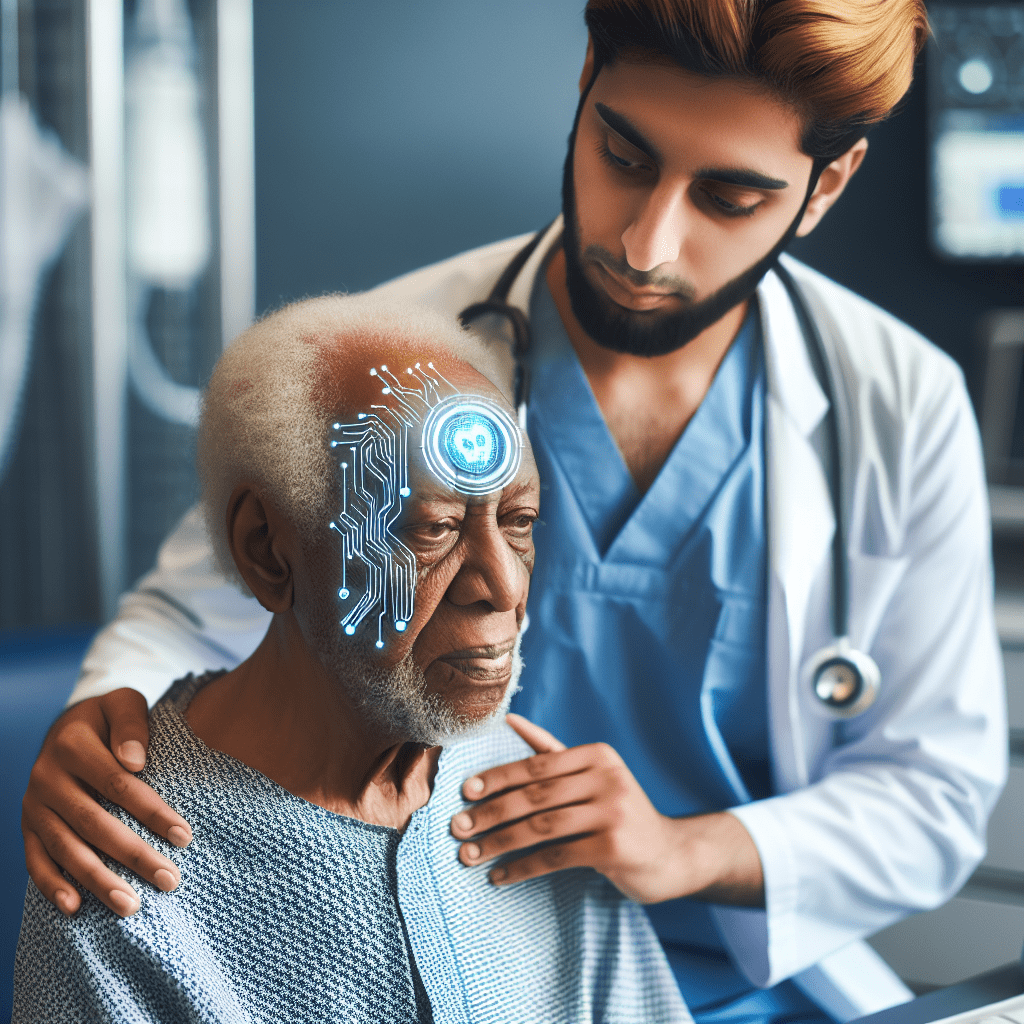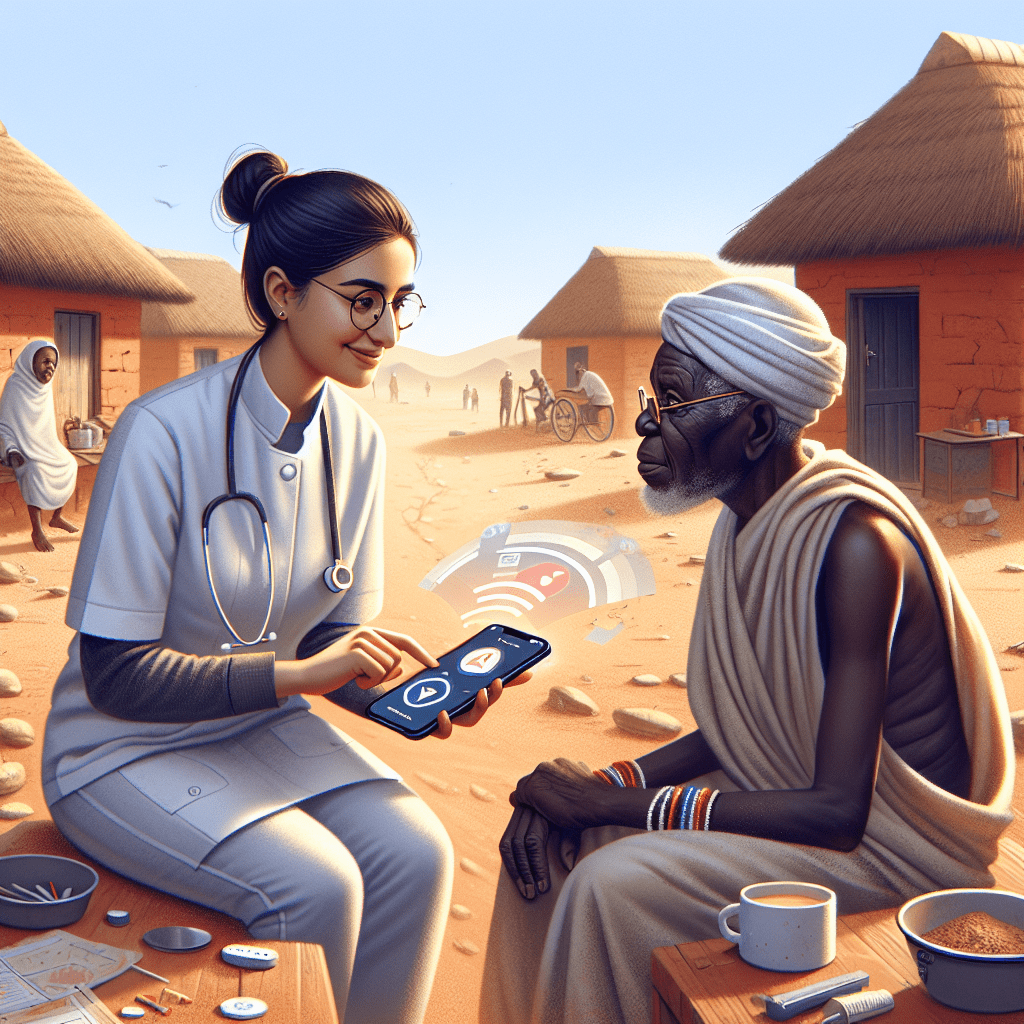Table of Contents
In a nation where stark inequalities persist, South Africa is turning to artificial intelligence (AI) to revolutionize its healthcare landscape. Despite being the most economically developed country in Africa, South Africa grapples with a dual burden of infectious diseases like HIV/AIDS and tuberculosis, alongside a rising tide of non-communicable diseases such as diabetes and cardiovascular conditions. Compounding these challenges are the vast disparities in healthcare access and quality between urban and rural areas, as well as between public and private healthcare facilities.
The Promise of AI in South African Healthcare
AI holds immense potential to bridge these gaps and enhance healthcare delivery in South Africa. From early disease detection and diagnosis to personalized treatment plans and resource allocation, AI-powered solutions are being developed and deployed across various domains of healthcare.
“AI has the ability to democratize healthcare in South Africa by making quality care more accessible and affordable for all,” says Dr. Vuyane Mhlomi, CEO of Quro Medical, a South African healthcare technology startup. “By leveraging AI, we can optimize our limited resources, improve efficiency, and ultimately save more lives.”

Early Disease Detection and Diagnosis
One of the key areas where AI is making a significant impact in South Africa is early disease detection and diagnosis. In a country where many people lack access to regular medical check-ups and screening, AI algorithms are being trained to identify early signs of diseases from medical images, blood tests, and other diagnostic data.
For example, researchers at the University of Pretoria have developed an AI system that can detect tuberculosis from chest X-rays with a high degree of accuracy. This technology has the potential to greatly improve the speed and efficiency of TB diagnosis, especially in remote areas where access to specialist radiologists is limited.
Similarly, AI is being used to detect early signs of diabetic retinopathy, a leading cause of preventable blindness in South Africa. By analyzing retinal images, AI algorithms can identify subtle changes indicative of the disease, enabling timely intervention and treatment.
Personalized Treatment and Care
Another promising application of AI in South African healthcare is personalized treatment and care. By analyzing vast amounts of patient data, including medical history, genetic information, and lifestyle factors, AI can help healthcare providers develop tailored treatment plans that optimize outcomes and minimize side effects.
“AI has the potential to revolutionize precision medicine in South Africa,” explains Prof. Tshilidzi Marwala, Vice-Chancellor of the University of Johannesburg and a leading AI researcher. “By harnessing the power of big data and machine learning, we can develop targeted therapies that are more effective and less toxic than one-size-fits-all approaches.”

Optimizing Resource Allocation and Logistics
In a resource-constrained setting like South Africa, efficient allocation of healthcare resources is crucial. AI can play a vital role in optimizing resource allocation and logistics, ensuring that the right resources are available at the right time and place.
For instance, AI-powered predictive analytics can forecast demand for specific drugs, medical supplies, and equipment, enabling better inventory management and reducing stockouts. Additionally, AI can optimize the scheduling and deployment of healthcare workers, taking into account factors like patient needs, staff skills, and geographic distribution.
“By leveraging AI to streamline our supply chain and workforce management, we can significantly improve the efficiency and effectiveness of our healthcare system,” notes Dr. Bandile Masuku, former MEC for Health in Gauteng Province. “This is particularly important in a country like South Africa, where resources are limited and needs are great.”
Addressing the Digital Divide
While AI holds immense promise for transforming healthcare in South Africa, it is crucial to address the digital divide that exists in the country. Many rural and underserved communities lack access to reliable internet connectivity and digital devices, which can hinder the deployment and adoption of AI-powered healthcare solutions.
To overcome this challenge, innovative approaches are being explored, such as the use of mobile health (mHealth) technologies and community health workers. By leveraging the widespread use of mobile phones in South Africa, mHealth apps can deliver AI-powered healthcare services directly to patients, even in remote areas.

Ethical Considerations and Bias Mitigation
As with any application of AI, it is essential to consider the ethical implications and potential biases that may arise. In the context of South African healthcare, this means ensuring that AI algorithms are trained on diverse and representative datasets, reflecting the country’s racial, ethnic, and socioeconomic diversity.
Moreover, transparency and explainability must be prioritized in the development and deployment of AI systems. Healthcare providers and patients should be able to understand how AI algorithms arrive at their recommendations, and there should be clear mechanisms for human oversight and intervention when necessary.
“As we embrace AI in healthcare, we must be vigilant against perpetuating or exacerbating existing inequalities,” cautions Prof. Zeblon Vilakazi, Deputy Vice-Chancellor of the University of the Witwatersrand. “By prioritizing fairness, transparency, and accountability, we can harness the power of AI to promote health equity in South Africa.”
The Way Forward
South Africa stands at the forefront of the AI revolution in healthcare, with numerous initiatives and collaborations driving innovation and impact. From government-led strategies to public-private partnerships and academic research, the country is witnessing a surge of activity aimed at harnessing AI to improve healthcare access, quality, and outcomes.
As these efforts continue to gather momentum, it is crucial to maintain a focus on inclusivity, ethics, and sustainability. By engaging diverse stakeholders, including patients, healthcare providers, researchers, policymakers, and community leaders, South Africa can ensure that the benefits of AI in healthcare are distributed equitably and that no one is left behind.
In the words of Dr. Theophilus Acheampong, a leading AI researcher at the University of Cape Town, “The future of healthcare in South Africa is bright, and AI will play a pivotal role in shaping it. By working together and leveraging the power of this transformative technology, we can build a healthier, more resilient nation for all.”